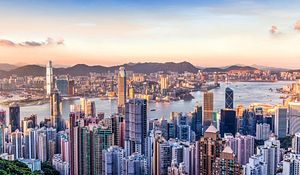In January, lawmaker Tommy Cheung Yu-yan introduced a private member’s bill into Hong Kong’s legislative body calling for the reform of the Medical Council. Despite 20 years of inaction, a string of high-profile cases of medical malpractice and long delays in the resolution of complaints, it was considered by many as a long shot against the 96-year-old institution.
The Medical Council was founded to protect patients, foster ethical conduct, and develop and maintain high professional standards, according to its website. Under the Medical Registration Ordinance, Cap. 161, Laws of Hong Kong, the Medical Council maintains a register of eligible medical practitioners, administers the Code of Professional Conduct. It also administers the Licensing Examination and holds strong regulatory and disciplinary powers for the profession.
A private member’s bill is proposed legislation that sits outside of the government’s planned set of legislative bills. The Medical Registration (Amendment) Bill 2016 proposes to change the number of council members. Currently there are 28 members in the Medical Council. The Council elects 14 members, all qualified medical doctors, with half from the Medical Association (similar to a union body), and the other seven members who are medical doctors, but are not part of the association. The other 14 members of the Medical Council are appointed by various educational and government bodies, as well as the Chief Executive of Hong Kong. The new bill seeks to elect another four members who are not doctors.
Most of the time, private member’s bills do not get through. However, on this occasion, it was backed by the government and after some amendments, incorporated into its wider plan. The government said the reforms would increase the Medical Council’s credibility and also expressed a desire to improve the mechanism for reviewing and investigating complaints and disciplinary inquiries, which the Medical Council is responsible for. The government also wanted to use the case to review the difficult issue of admitting foreign trained doctors, an issue which has also been largely dictated by the Council.
To date, the bill has faced heavy criticism by medical professionals, claiming the addition of the four new lay members will erode medical standards and professionalism, and pave the way for admission of overseas doctors with less stringent medical qualifications; a veiled reference to mainland China-qualified doctors. Many have claimed that the addition of the lay members are just another way for the current government, and Beijing, to assert political influence over the Council, which will ultimately undermine its autonomy and professional independence.
The lack of public trust in the government’s impartiality has been attributed to Chief Executive Leung Chun-ying’s past decisions. He took a heavy-handed approach in the 2015 appointment of the Chairman of University of Hong Kong Council. A hugely unpopular selection, Leung ignored public sentiment and appointed fellow Beijing loyalist Arthur Li Kwok-cheung, following hostile demonstrations by protesters who were angry over the suspicious rejection of academic, and pro-democracy advocate, Johannes Chan for the role of Pro Vice Chancellor. Many also accuse Leung of encouraging police prejudice following the 2014 street protests, with his personal selection of members to the Police Complaints Council.
On Friday, July 8, the bill was due to be voted on at its third, and last reading, however, the medical sector lawmaker filibustered the vote. Dr Leung Ka-lau’s proposed to set up a committee to further analyze and scrutinize the government’s proposal.

































